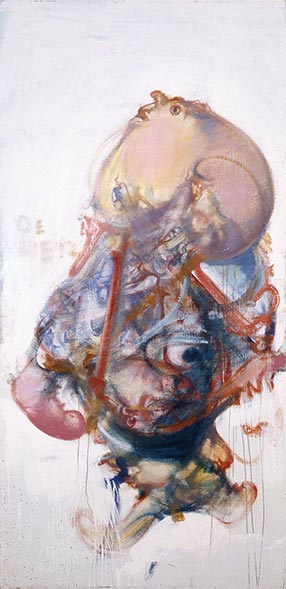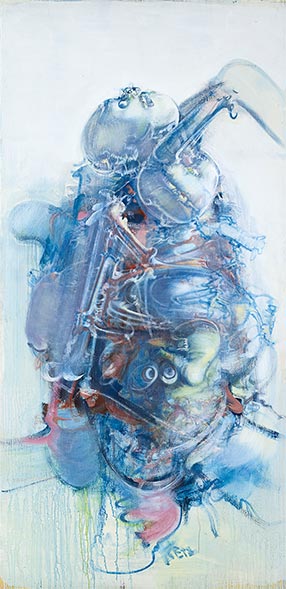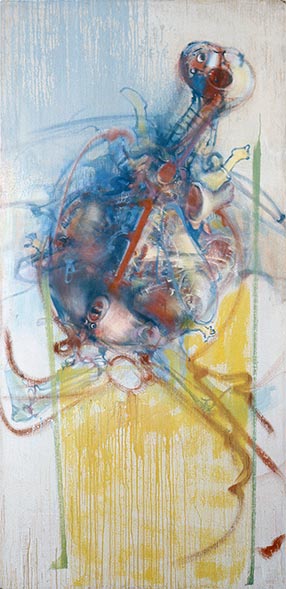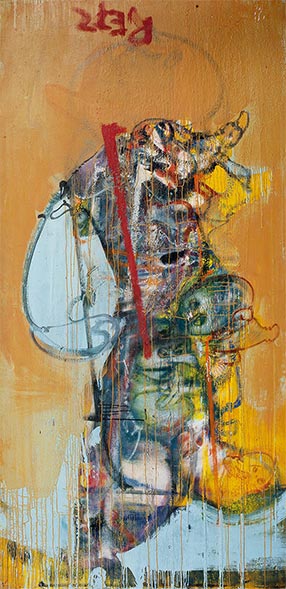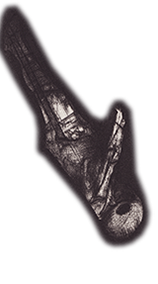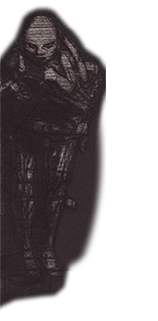Dado or the Cardinal de Retz
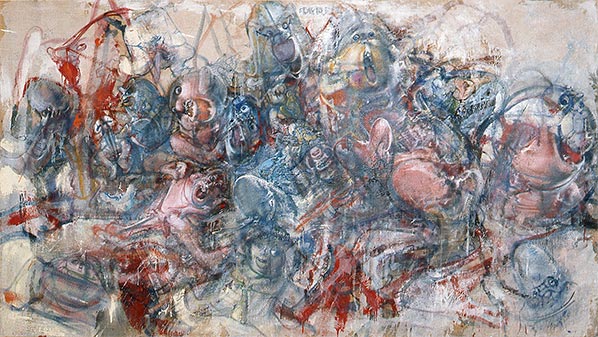
The pictures here belong to the series known as the “Memoirs of the Cardinal de Retz.” They were painted in oil in 1992 on wooden panels all of the same size (251 × 122 cm) except for the picture above (The Fronde, oil on canvas, 225 × 400 cm). They are here accompanied by a text by Pierre Bettencourt, Dado or the Cardinal de Retz, first published in L’Œuf sauvage, no. 6, winter 1992-1993.
Click on the images to enlarge them
(large and extra large sizes)
❧
Fullscreen
slideshow
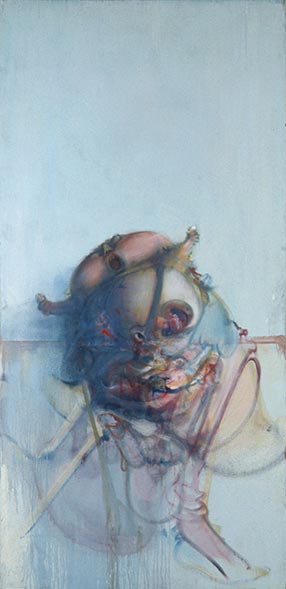
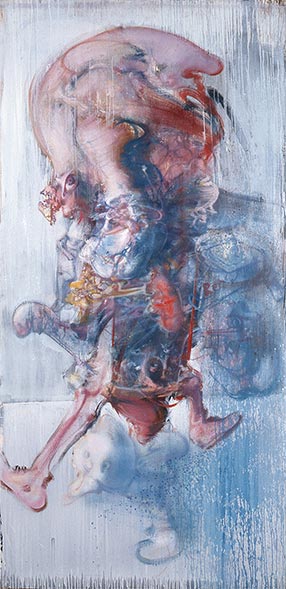
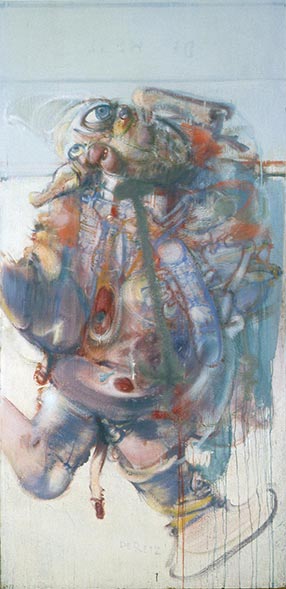
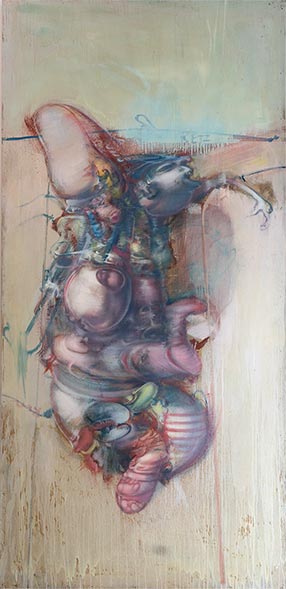
The most recent to be waylaid by the power of Dado’s brush was one conveying Buffon. That amiable insect hunter, somewhere between Paris and Montbard, was in all probability having a doze. Dado asked me for a helping hand to wake him up. And to perpetrate his crime. And with malice aforethought, if I dare say. One doesn’t much like assassinating the dead..
But this time his prey has a far more securely guarded carriage, preceded and followed by a virtually regal escort. And this coach, which in the course of the day stops occasionally to permit some pretty marquise with a powdered little phiz – necessity oblige – to alight, conceals in the shadow of its portals a variegated creature with very a different if no less perturbing charm, the Cardinal de Retz.
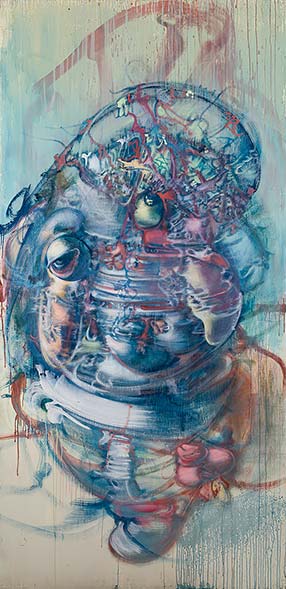
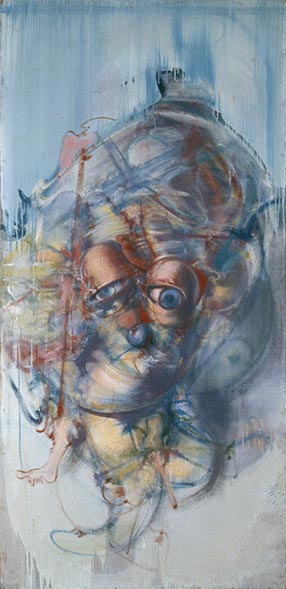
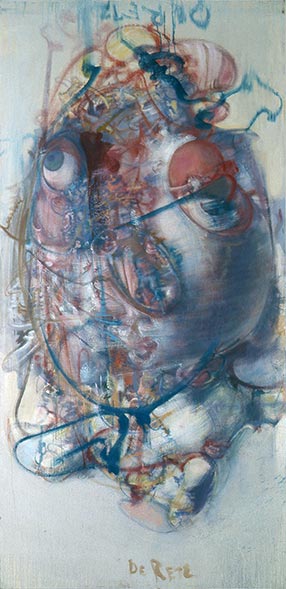
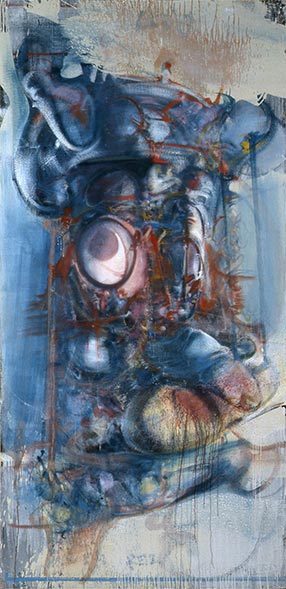
A dual pleasure in prospect, then: kill the second, and then, on the still warm body of the prelate, enjoy the yielding flesh of the others.
Before putting this plan into practice, Dado has to become acquainted with the character of he whose life he is, as it were, to traverse. A little as one peruses a menu. A swashbuckling friend hands him the complete works of the Cardinal de Retz, and into it he dives. He cannot help but admire it, be it to mocking looks from his daughters, both as beautiful as the aforementioned marquise, and whose far from dizzy heads, having juggled with erudite study, are just as capable of distinguishing the genuine from the phony as decipher a man’s true character. Dado devotes himself to reading without stint: such adoration is permitted, since it is to be followed by a sacrifice. It’s a privilege he keeps to himself and which he plans to exercise far from prying eyes, alone in his studio that soon turns into that diligence where his inevitably rather awkward tête à tête with the cardinal will begin. Hence we conclude that Dado is a moralist desirous of according a death worthy of his victims…
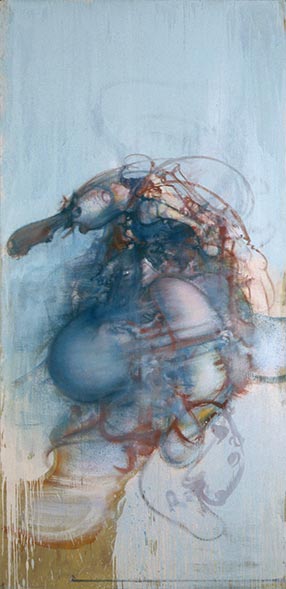
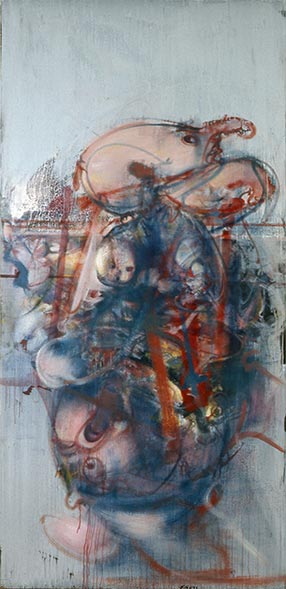
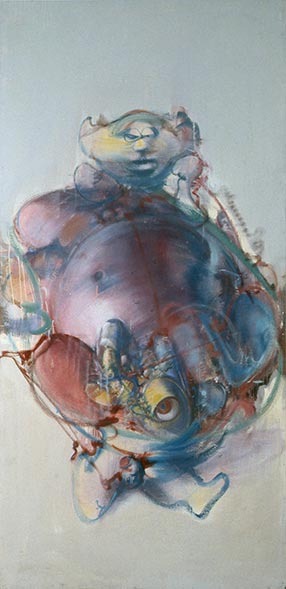
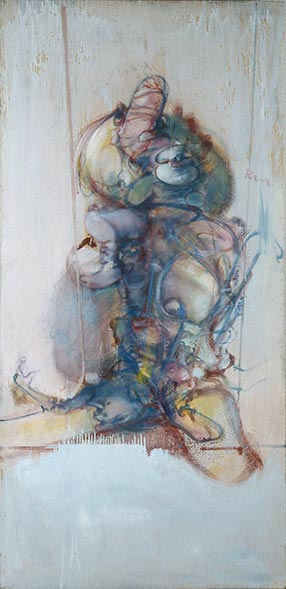
But, in fact, who is Retz, and does he deserve such honor? Sidetracked by a stymied vocation, a man of incredibly complexity, from duels to affairs of the heart, at the end cleaving to his cardinal’s hat, yet guilty of a narrative stuffed with “true-to-life episodes” that Stendhal loved to read, an explosive mix then of many individuals, some of whom (he adores Caesar) not people you’d want to meet. But, to make up for all this, what a get-up, what style! Who is Retz? One can of course gain some idea by reading his Memoirs. As for Dado…
He wanted to see his man close to; as if execution calls for judgment – be it prior or posthumous, – but which in any event washes one’s hands of the responsibility. The crime committed, now we have before us, finally visible, spread over the walls, the instruments of the crime; the very weapons, one might say, employed to deliver the coup de grace. For the pictures are but one; overloaded, howling, provocative – still bleeding, like branding-irons left in the wound, each iron repeatedly dipped. As if the wound were a brazier in which the edge is heated before being hammered out on the anvil, so that, sharper now, it can be plunged in a second time. I spoke of an anvil: that’s Dado’s head of course. But perhaps it’s the brazier too, since it is there, in the blaze, that all begins.
Pierre Bettencourt, Summer 1992.
Translated from French by D. Radzinowicz
